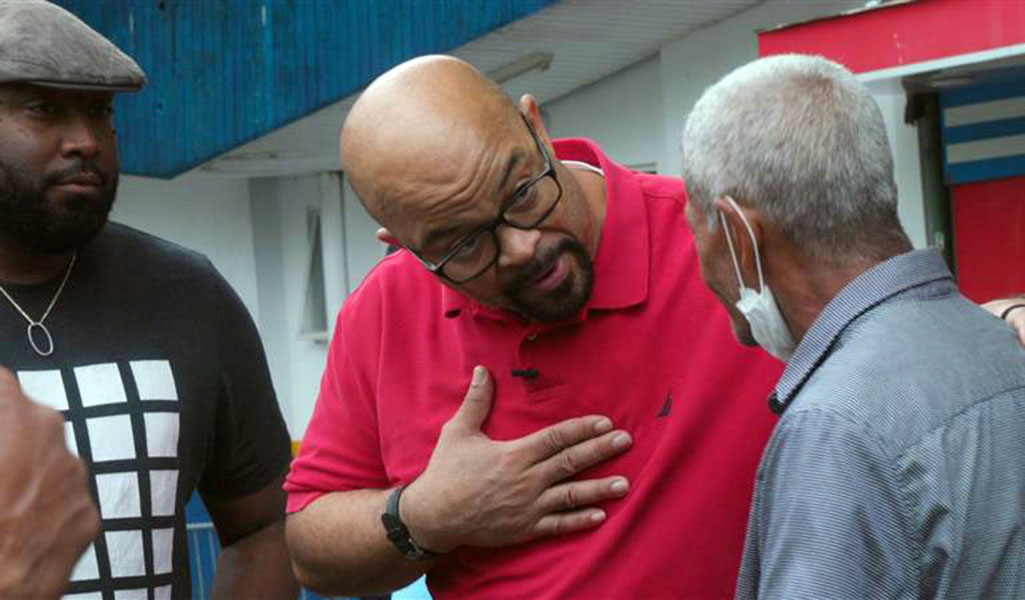The Christian Action League of North Carolina (CAL) is a Christian public-policy organization, birthed by the Baptist State Convention of North Carolina in 1937, but today represents conservative evangelical churches from 16 denominations in the Tar Heel state. The organization has a full-time presence in the North Carolina General Assembly, addressing legislative and public policy matters from a biblical worldview.
The 2017 Long Session of the General Assembly was a grueling one. It was a session of highs and lows. Following is a summary of actions taken by the state legislature:
Crisis pregnancy centers
The budget increased spending for the next two years for crisis pregnancy centers from $300,000 to $1.3 million. Various grants of upwards to $1 million were allocated to the Carolina Pregnancy Care Fellowship for “durable medical equipment.” The equipment includes ultrasound machines, along with training clinics for properly using them.
School choice
The state’s budget expanded the North Carolina Opportunity Scholarships Act, which passed by the General Assembly in 2013, to help students from low-income and working class families attend a private school, by providing state-funded tuition scholarships up to $4200 annually. The Children with Disabilities Scholarship, which became available in 2014, reimburses families for approved educational expenses for special needs children. Those expenses include private school tuition, tutoring and other therapeutic services. The budget appropriates $44.8 million for the 2018-2019 school term and increases the appropriation to $54.8 million for 2019-2020.
Human trafficking
Language in the budget also requires the National Human Trafficking Resource Hotline number to be displayed at adult entertainment venues, alcohol outlets, hospitals, highway rest stops and other places where victims of human trafficking often frequent. The number is (888) 373-7888.
Age of juvenile jurisdiction raised
Legislation to raise the age of juvenile jurisdiction was added to the state’s budget. This legislation was about bringing North Carolina into line with the rest of the country in its treatment of juveniles in the court system. Our state was the only state that prosecuted defendants as adults when they are as young as 16 and accused of low-level and non-violent crimes.
Repeal of HB2
In March HB2 was repealed by the legislature. Commonly known as the Bathroom Bill, the measure created a national firestorm. It was a common sense law that prohibited men from using the women’s restroom, locker room or showers and vice versa. It also protected private business owners’ rights to live and work according to their religious beliefs without punishment by the government. CAL was a strong advocate for the law. The repeal was touted as a compromise, but was not full repeal.
It still protects privacy in bathrooms and shower facilities by leaving regulation of multi-occupancy facilities to the state, returning to the status quo prior to the passage of Charlotte’s bathroom ordinance, which precipitated the need for HB 2. It implemented a temporary moratorium on local sexual orientation and gender identity ordinances similar to Charlotte’s until Dec. 1, 2020, to allow for federal litigation to play out.
(FOLLOW-UP NOTE – On Oct. 18, Gov. Roy Cooper issued an executive order that essentially resurrected the Charlotte ordinance and now allows men into women’s restrooms, locker rooms and showers. The order applies to any multiple occupancy bathrooms, locker rooms or showers owned by the state or any local government entity, government offices and public schools. It also requires that private contractors and subcontractors doing business with the state must adopt a nondiscrimination policy including “sexual orientation” and “gender identity.”)
Gambling and alcohol
Lawmakers sponsored and vigorously supported legislation for gambling and alcohol interests in 2017 They passed a bill that authorizes tax-exempt organizations to operate Las Vegas-style gaming nights and serve alcoholic beverages as a part of a non-profit’s fundraising events.
The Gaming Nights (or Casino Nights) bill that lawmakers passed by a wide margin was, unfortunately, the state’s affirmation of Las-Vegas style gaming beyond its compact with the Cherokee. Fortunately, Governor Roy Cooper vetoed this legislation. We hope those who typically identify with us on the values we represent, will make no effort to override the Governor’s veto.
There were other bills put forward that were meant to expand gambling. The Senate’s budget proposal included a provision to double the appropriation for lottery advertising. This measure was defeated, as was a bill that would have legalized online Daily Fantasy Sports Gambling, which died in committee.
Alcohol distribution
Another measure in this category was a bill titled ABC Omnibus Legislation. It originally had a provision that would have raised the current limit on the number of barrels a brewery could self-distribute directly to retailers without working through a middleman or a wholesaler from 25,000 barrels to 200,000 annually. It would have allowed brewers to circumvent the second Tier of our critical Three Tier system of alcohol control, making it possible for them to concentrate their power directly with retailers.
The Three Tier system is a control system that provides essential checks and balances to prevent overly aggressive marketing and sales practices that can lead to alcohol falling into the wrong hands like underage drinkers. The system also provides a clear and identifiable distribution chain that ensures the location of every ounce of a product well-known for its inherent dangers and establishes a transparent means of collecting taxes. Lawmakers strip this provision from the bill, but the measure was still left with other provisions that expanded alcohol sales.
Sunday-related bills
Several Sunday-related proposals were considered by the legislature like the Sunday Brunch Bill. It was a provision left in the Omnibus alcohol legislation that authorizes cities, towns and counties to roll back the time for earlier Sunday alcohol sales from noon to 10 a.m., providing they pass an ordinance to do so.
There was more legislation this year that also expanded Sunday hunting. In 2015, lawmakers repealed North Carolina’s 145-year prohibition on Sunday hunting. Lawmakers prohibited Sunday hunting from 9:30 a.m. to 12:30 p.m. – the hours most churches meet.
(EDITOR’S NOTE – Mark Creech is executive director of the Christian Action League of North Carolina.)


